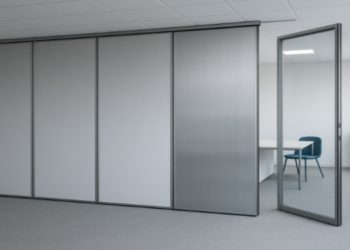Poor indoor air quality can lead to a range of health problems, from respiratory issues to headaches and fatigue. This is particularly concerning in workplaces, where employees may spend several hours a day breathing in pollutants and irritants. Fortunately, one easy solution to this problem is the use of air purifiers in the workplace. Even small economical purifiers like Mini Aer can easily cover a small single room.
Reduce Airborne Contaminants
The most obvious benefit of air purifiers is their ability to reduce airborne contaminants in the workplace. These contaminants can include dust, pollen, mold spores, pet dander, and even viruses and bacteria. When these particles are removed from the air, employees are less likely to suffer from allergy symptoms, respiratory problems, or infections. This, in turn, can lead to fewer absences and more productive workdays.
Decrease Sick Days
By reducing the number of allergens and pollutants in the air, air purifiers can also help decrease the number of sick days employees take. This is especially important during cold and flu season when viruses can easily spread throughout the office. By reducing the risk of infection, air purifiers can help keep employees healthy and working productively.
Better Sleep Quality
Poor air quality can also affect employees’ sleep quality, leaving them feeling tired and unfocused during the workday. Air purifiers can help by removing pollutants and purifying the air, leading to better sleep quality and increased overall energy levels.
Improve Concentration and Focus
Research has shown that poor indoor air quality can lead to cognitive function impairment, including reduced attention span, decreased productivity, and impaired decision-making ability. Air purifiers help eliminate these contaminants, giving employees the clean and fresh air they need to stay focused and energized during the workday.
Improve General Wellbeing
Lastly, air purifiers can help improve employee wellbeing, both physically and mentally. By removing allergens and irritants in the air, employees are more comfortable and can breathe easier, leading to a more positive and productive work atmosphere.
Benefits of Air Purifiers in the Workplace
In addition to the specific advantages mentioned above, there are many other benefits of using air purifiers in the workplace. Here are a few more reasons why investing in an air purifier is a wise decision for any business:
Cost-Effective
While some may argue that purchasing and maintaining air purifiers can be expensive, the long-term benefits far outweigh the initial costs. By providing a healthy and productive work environment, air purifiers can help reduce employee sick days and turnover rates, ultimately saving the company money.
Easy to Use
Modern air purifiers are designed to be user-friendly and simple to operate. They require minimal maintenance and can easily be integrated into any office space without causing disruptions or distractions.
Environmentally Friendly:
Indoor air pollution not only affects employees, but it also has a negative impact on the environment. By using an air purifier, businesses can contribute to reducing their carbon footprint and promoting sustainability.
Customizable Options
There are various types of air purifiers available on the market, each with its own unique features and capabilities. This allows businesses to choose the best option for their specific workplace needs, whether it’s targeting allergens, smoke, or bacteria.
Improved Overall Health
The benefits of air purifiers go beyond just improving employee wellbeing. With cleaner air, employees are less likely to experience respiratory issues and other health problems caused by poor indoor air quality.
Enhancing Cognitive Function and Productivity
Aside from physical health benefits, clean air can also lead to improved cognitive function and productivity in the workplace. Studies have shown that poor air quality can impair cognitive abilities, while good air quality can enhance focus and decision-making skills.
A study conducted by Harvard University found that employees working in a well-ventilated office space with low levels of indoor pollutants scored higher on cognitive tests compared to those in a less ventilated space.
Choosing the Right Air Purifier for Your Office Space
When it comes to choosing the right air purifier for your office, there are a few factors to consider. First, it’s important to determine the size of your office space and choose an air purifier that is suitable for that square footage. It’s also important to consider the specific pollutants you want to target, as different air purifiers have different capabilities.
Another consideration is the maintenance and upkeep of the air purifier. Some models require regular filter changes, while others have washable filters. It’s important to choose an option that fits into your office’s budget and maintenance capabilities.
Lastly, be sure to research the brand and read reviews from other customers to ensure you are getting a quality product. Investing in a high-quality air purifier will not only provide better results but also save costs in the long run by reducing employee sick days and increasing productivity.
Analyzing the ROI of Investing in Air Purifiers
While the initial cost of purchasing and installing air purifiers in your office may seem high, it is important to consider the long-term benefits and return on investment (ROI) that they can provide.
One obvious benefit is improved employee health and reduced sick days. This not only saves money for the company but also increases overall productivity as employees are able to work more efficiently in a clean and healthy environment.
Air purifiers can also help reduce energy costs by improving the efficiency of HVAC systems. By removing pollutants from the air, air purifiers can help prevent clogged filters and improve airflow, resulting in a more efficient heating and cooling system.
In addition, investing in air purifiers can also have a positive impact on the environment by reducing the amount of harmful pollutants released into the atmosphere. This aligns with many companies’ efforts to be more environmentally conscious and can improve their overall reputation.
David Prior
David Prior is the editor of Today News, responsible for the overall editorial strategy. He is an NCTJ-qualified journalist with over 20 years’ experience, and is also editor of the award-winning hyperlocal news title Altrincham Today. His LinkedIn profile is here.












































































